In part two of her essay series, Faye Bradley describes how a heightened awareness of local pride and an emphatic commitment to protecting the environment are driving the music festivals and wellness retreats held on Hong Kong’s outlying islands.
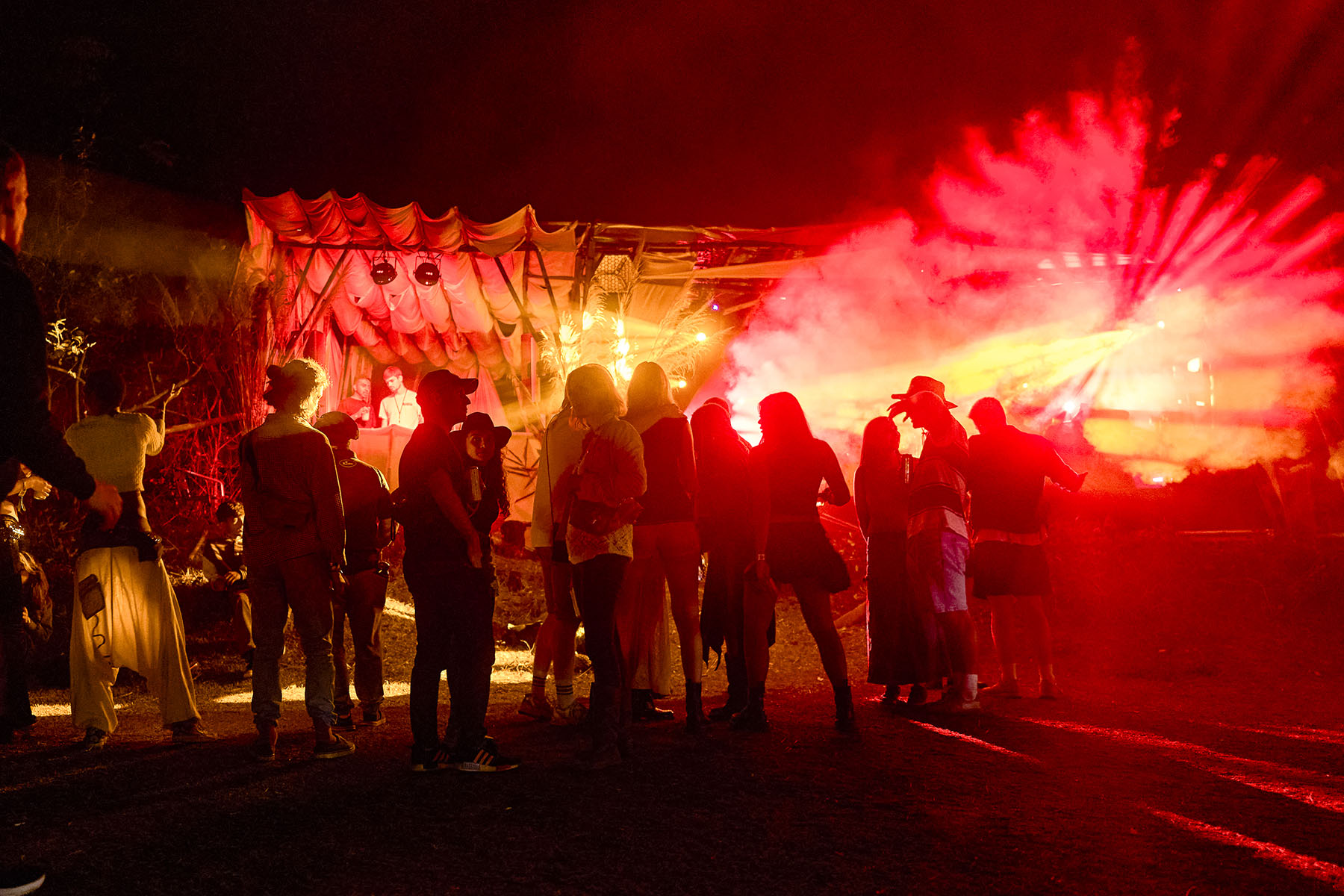
Music festivals, wellness retreats and community initiatives aren’t exactly new to Hong Kong’s outlying islands. The Silvermine Bay Music Festival held on Lantau Island, for instance, was started way back in 2006. The Lamma Fun Day Beach Music Festival, set for Nov 16, will see its 21st edition this year. What has probably changed over the years, though, is a heightened awareness of local pride and a more emphatic commitment to protect the environment.
At the same time, newer festivals celebrating Hong Kong’s outlying islands keep coming up. March saw the emergence of Jungle Island Music Festival, held in Tai Long Wan village on Lantau Island. Though secluded, the village can be reached easily by ferry or sampan. The organizers limited the number of visitors to 500 a day in order to reduce the impact of increased tourist traffic on a sparingly visited area. The lineup comprised over 60 local acts, headlined by Shumking Mansion, Fergus, Mengy and Immuno.
READ MORE: Party on the beach
According to festival co-organizer Olaf Hessing, 30 percent of the participating artists have roots in Cheung Chau, Lantau, and other outlying islands of Hong Kong.
He says that the festival is meant to “provide a platform for local artists, whether they are established or fairly new on the scene”, and irrespective of their preferred genres and music styles. At the same time, it is also about “creating an experience that attracts visitors to Hong Kong’s outlying islands”.
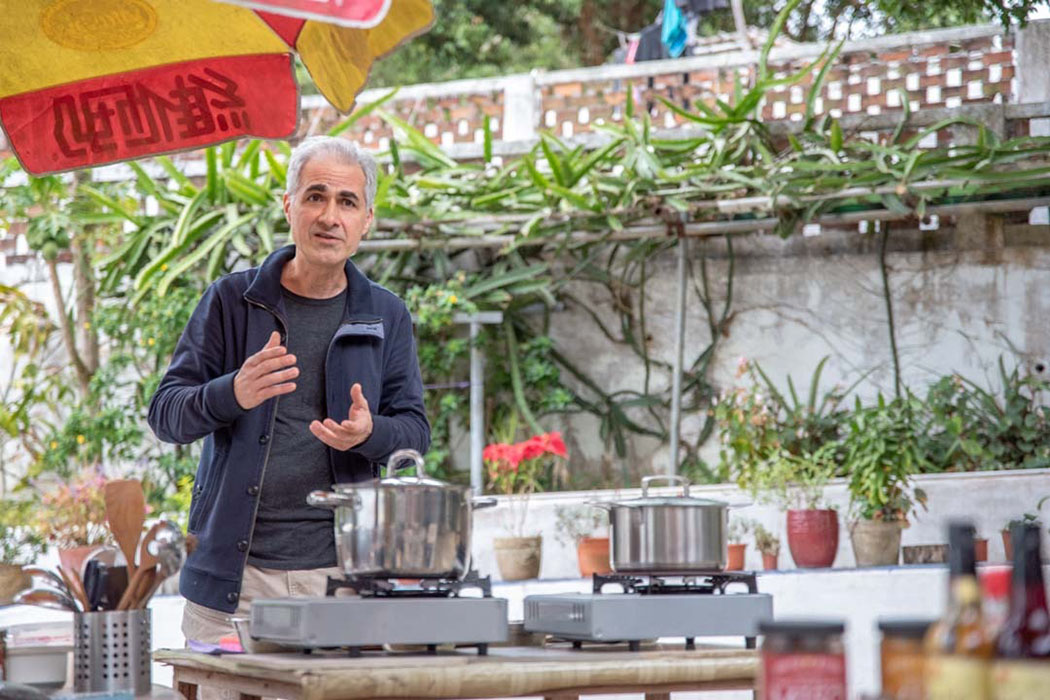
Inspired by the city
Shi Fu Miz Festival, an annual celebration of music and art started in 2016 by FuFu Creative and La Mamie’s, is today regarded as one of the city’s hot-ticket destinations for house and techno music. The annual event takes place on the lawns of Sai Yuen, a farm on Cheung Chau Island.
Co-founder Florian Melinette says that the festival aims to promote underground electronic music talents from around the world in a natural environment — “a beautiful farm with camping facility and beach access”.
He adds that the festival has something for people of all ages, and with different interest areas: wellness, sports, music and art. “Our graphic-design identity, scenography and art installations are inspired by different aspects of Hong Kong culture, and we always invite local talents to represent the Hong Kong music scene.”
Music festival organizers have to be especially careful to not disrupt the peaceful ambience of the islands by causing noise pollution. Shi Fu Miz Festival collaborated with the online platform Green Is The New Black to introduce a raft of measures aimed at minimizing the number of carbon footprints it generates.
A strict no-single-use plastic policy is followed at the festival site. Water fountains, equipped with reusable cups, are provided. Organic waste is collected for composting. The power supply comes from solar panels. The festival also holds workshops to raise awareness of the importance of caring for the planet.
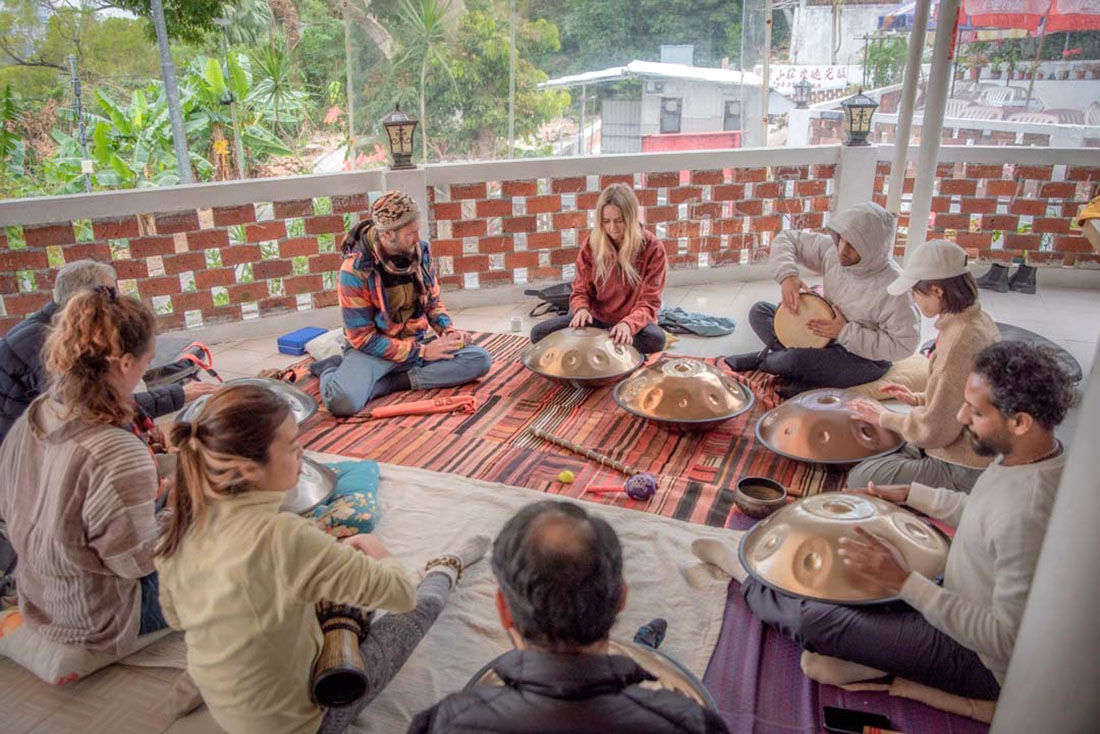
The pandemic trigger
Since its inception, Shi Fu Miz has attracted visitors from all across Asia and even Europe. “Music enthusiasts from Thailand, Singapore, South Korea, the Philippines and the Chinese mainland visit Hong Kong especially for the festival,” Melinette says.
However, it was the support of Hong Kong residents that sustained it over the last few years.
A number of island festival organizers seem to agree that Hong Kong people’s awareness of the outlying islands grew during the COVID-19 pandemic, when the restrictions imposed by the local government had virtually ruled out holidaying abroad. The stringently observed pandemic measures had led to a rediscovery of Hong Kong’s local attractions by default. A number of urbanites who had not been too keen to step outside their comfort zones on Hong Kong Island or in Kowloon began appreciating the fact that destinations such as Tai Long Wan were not as far away as they had previously assumed. As a result, today people “are seeking out diverse experiences in different locations”, Hessing says.
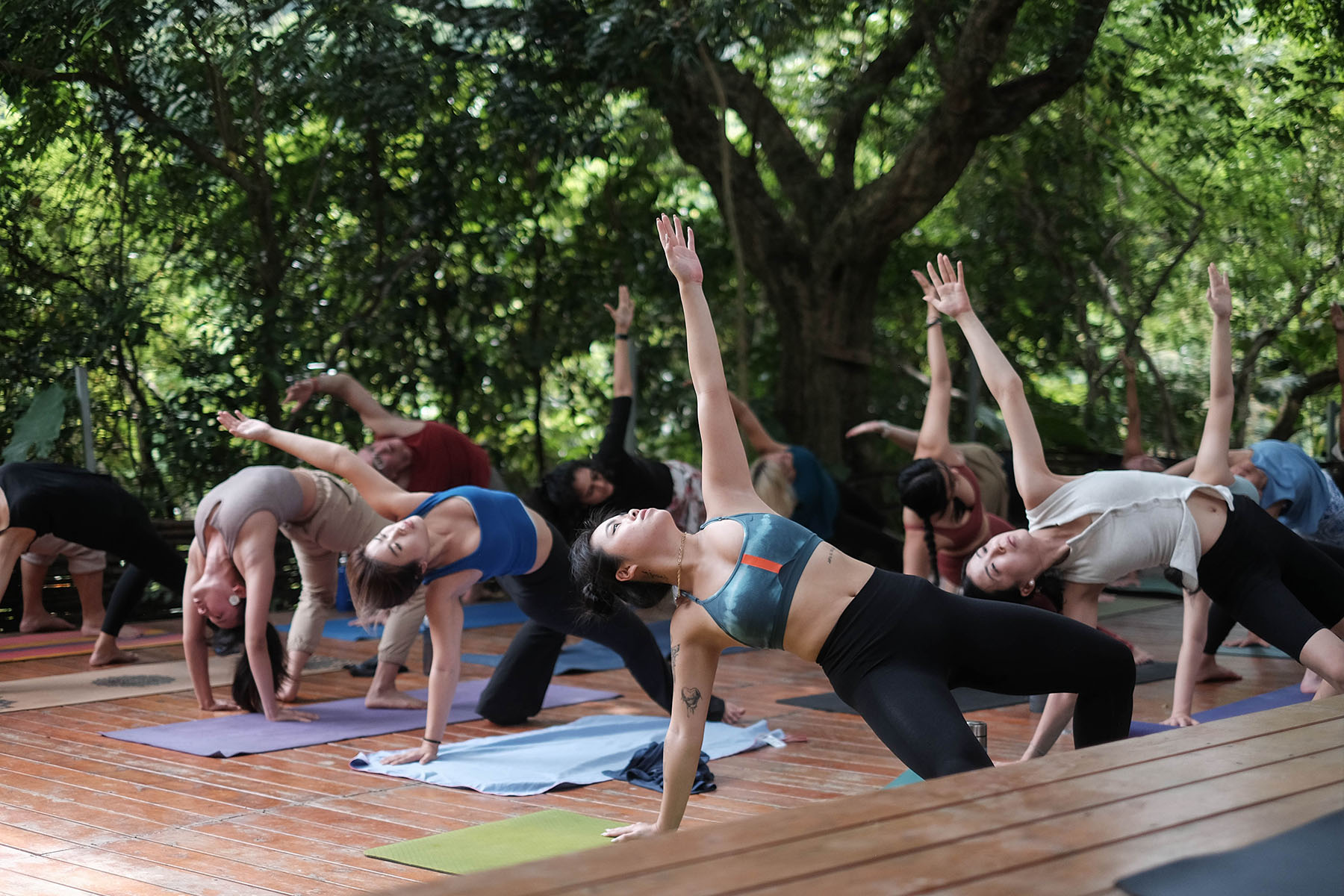
A complete package
There are no prizes for guessing why Hong Kong’s outlying islands, with their abundant greenery, stunning vistas and generally laid-back vibe, make great locations for holding wellness retreats. Jill Marshall runs a wellness studio, cafe and charity in Mui Wo. Customers signing up for yoga sessions at her Pause Health and Wellness studio also get to sample a slice of the local history and culture in the bargain.
“Our studio is by the river, and the cafe is tucked just behind the beach, beside one of the local, old banyan trees in a beautiful old building that survived World War II, despite being in close proximity to the Japanese-occupied barracks in Mui Wo,” says Marshall.
Celebrating local festivals and drawing attention to the lifestyle practices of families that have been living on Mui Wo for generations together was always a part of Pause’s agenda. The organization offers free yoga classes to senior citizens, supports local businesses, and employs local people. Composted food waste goes into fertilizing gardens in the vicinity. Pause also invites local artists to take part in daylong retreats.
“We really encourage people to come over and experience island life both with us as well as with other amazing small businesses and in general to simply explore the trails, mountains and the local terrain in general — feel the fresh air, walk on sand or soil and experience village life,” Marshall says.
She corroborates Hessing’s view that the pandemic had by default caused a mini boom in local tourism. She recalls getting a rush of visitors over the weekends when pandemic measures mandated hotel quarantine for overseas returnees.
“Our day retreats, offering mental healing sessions, proved very popular, with tickets selling out.” While Pause has since lost a sizeable part of that customer demographic, tour groups from the mainland have been coming back to fill the gap.
“Authentic island and village rituals performed on Hong Kong’s outlying islands have become very popular with mainland tourists,” says Annalyn Emano-Rizabal, a tour operator with Hello Hong Kong Tours. “The lack of similar festivals on the mainland makes these events highly attractive. Tourists from the mainland particularly enjoy these occasions, taking numerous photos for creating social media content.”
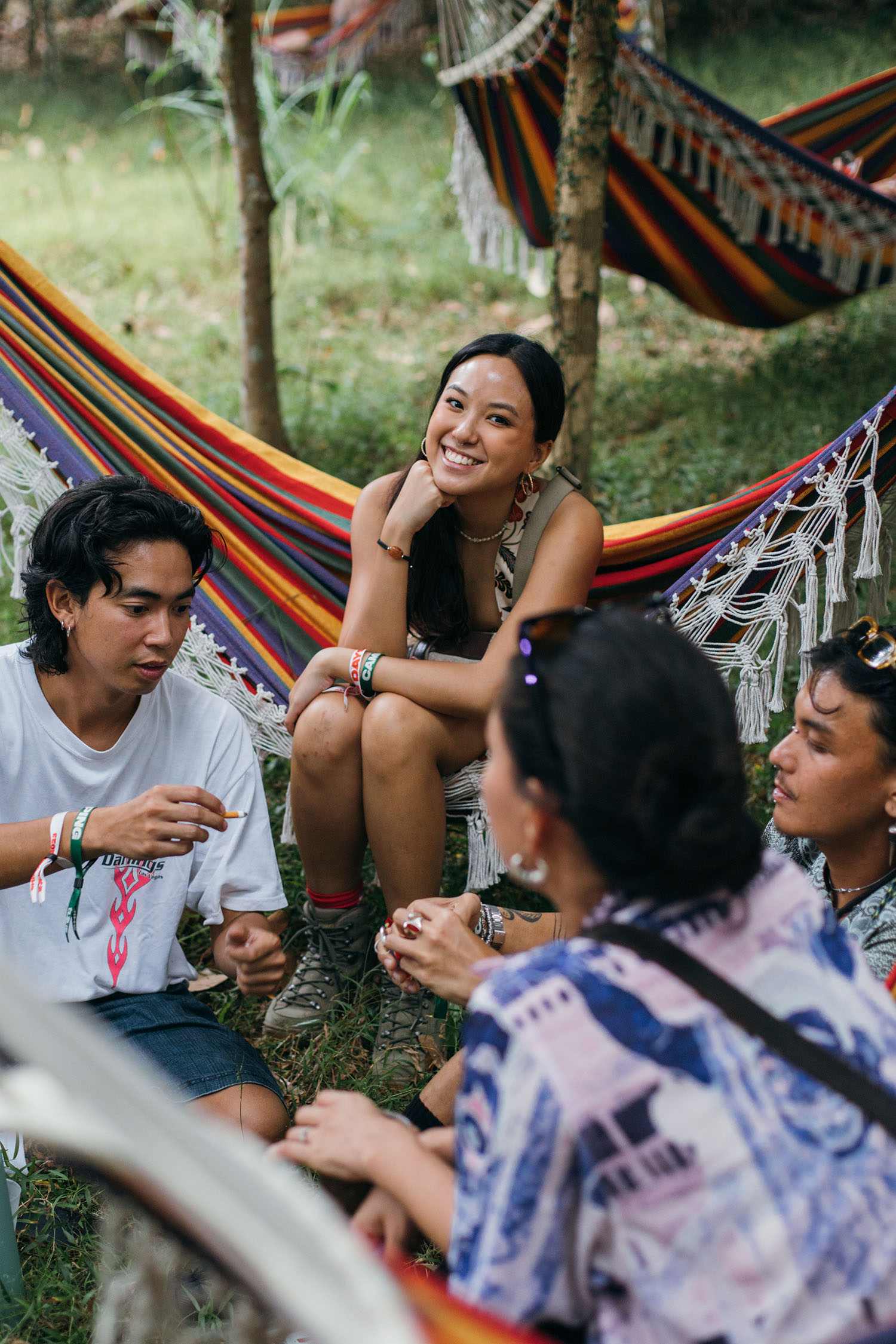
Meeting of minds
Unlike Marshall, who has been running Pause for more than 12 years, Maggie Tan is a relative newcomer to the wellness business. She started hosting the eponymous Lamma Holistic Retreats on Lamma Island only last year. The space is meant to serve as a common ground for both people with a creative bent of mind as well as wellness professionals. Tan’s aim is to facilitate a meeting of minds so that participants may “share their talents”.
“We’re also working with local businesses like Pineapple Hill Farm and looking for ways to educate people to choose fresh and organic products over those available on supermarket shelves,” she says.
Participants who sign up can enjoy yoga classes and guided meditations in a natural setting. They also get to pick fresh vegetables at the farm and prepare macrobiotic dishes, besides having a go at playing a handpan to enjoy its soothing sounds.
Matt and Rebecca Teague, a brother-sister duo behind the wellness platform Baba’s, has been running a series of wellness events amid the natural surroundings of Hong Kong’s outlying islands. The most recent one of these — a day of yoga sessions, including a brunch and rounded off with tea and cakes around a campfire — took place at the ecological education center Ark Eden in Mui Wo in October.
The idea was to create a welcoming space where participants could meet, partake of meaningful experiences, and try to forge deep connections between themselves as well as with the environment. Baba’s operates on a “pay as you like” model, so that no one interested in joining is left out. The platform’s next event in December will follow a similar trajectory.
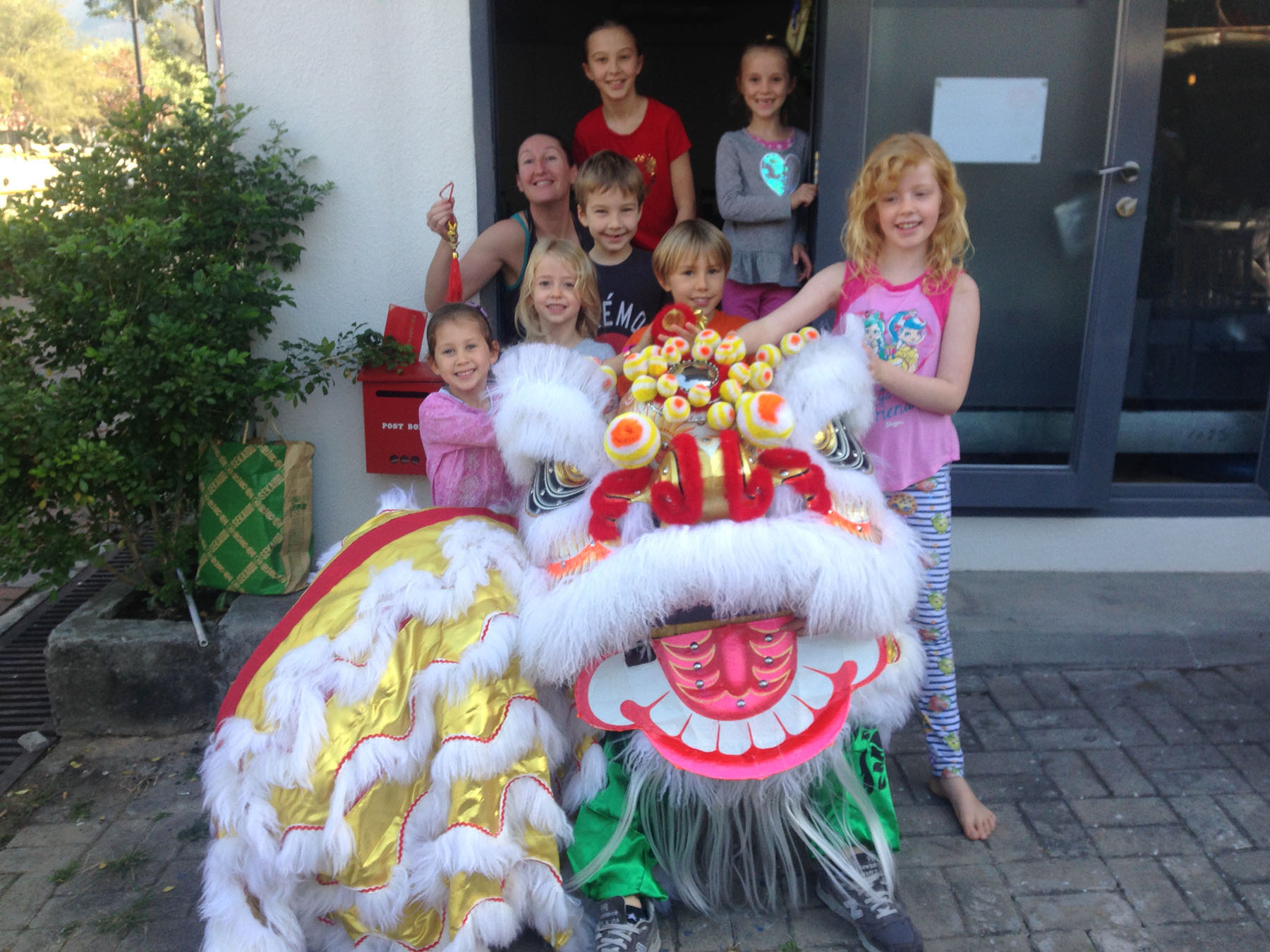
Unique selling point
Apart from their spectacular landscapes, peaceful ambience and close-knit community vibe, there are a few other factors about Hong Kong’s outlying islands that appeal to those seeking a curated tourism experience, with or without a value addition in the form of a music festival or wellness retreat. One rather obvious, and enduring, attraction is that every outlying island in Hong Kong is unique in terms of its physical features and local culture.
“Each of these islands has a different vibe, energy, look and feel. They have their own unique offerings and selling points,” says Hessing. He points out that Hong Kong is generally thought of as a city of skyscrapers and not necessarily as one that comes with greenery, hiking tracks and beaches. Community events, like the Jungle Island Music Festival, which he co-organizes, are meant to “celebrate all of these”.
READ MORE: Home away from home
Known to be materialistic busybodies with no time to stand and stare, Hong Kong people are waking up to the charms of the slow-paced life on the city’s outlying islands.
“We don’t need to escape to Thailand or Bali for an authentic experience, seeing that there’s so much to explore just at our doorsteps,” says Tan. “I may be biased since I’ve been living on Lamma Island for many years now, but there’s a sense of relief the moment you step off the ferry and onto the island, where the ambience tells you to slow down.”


